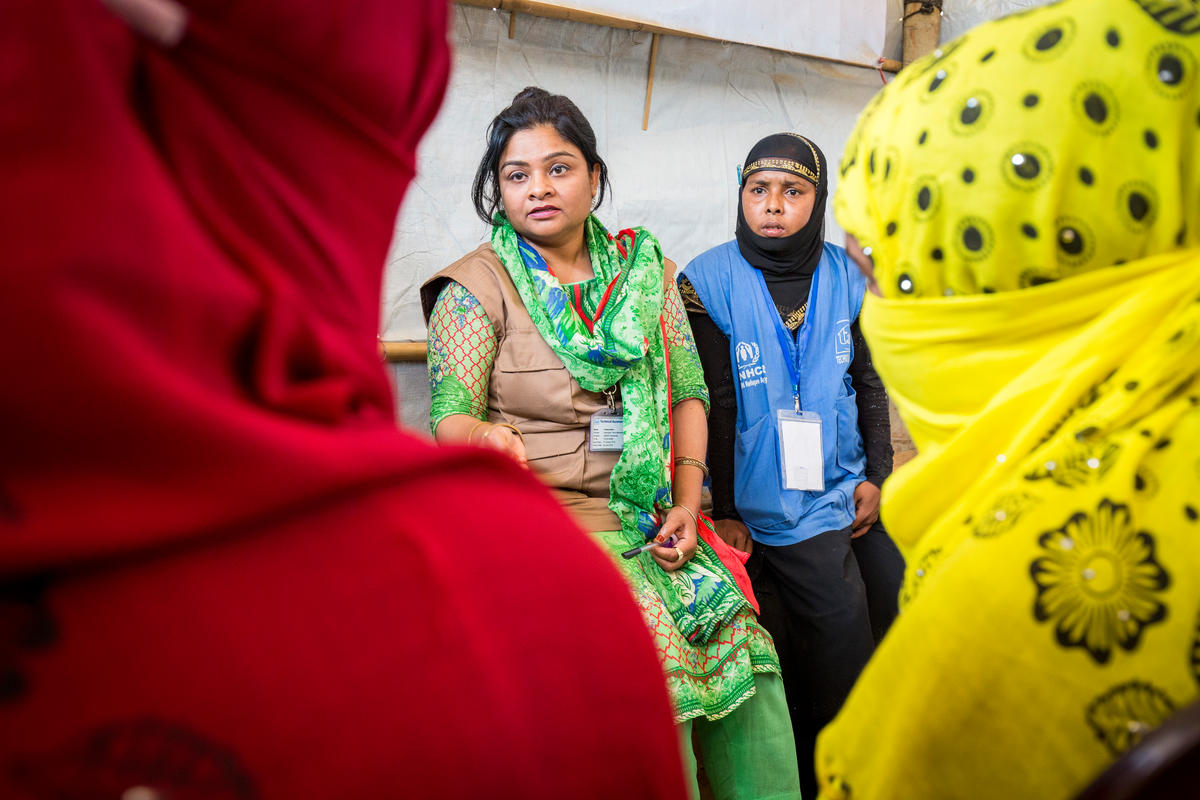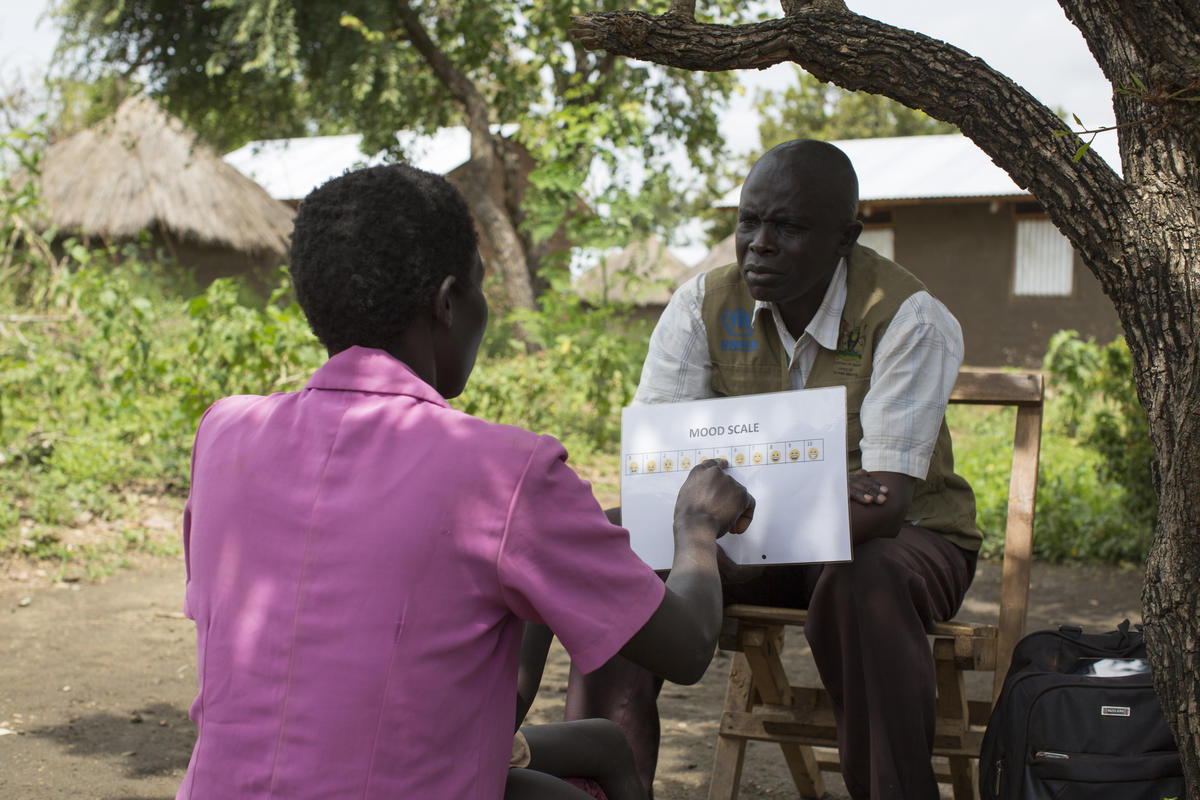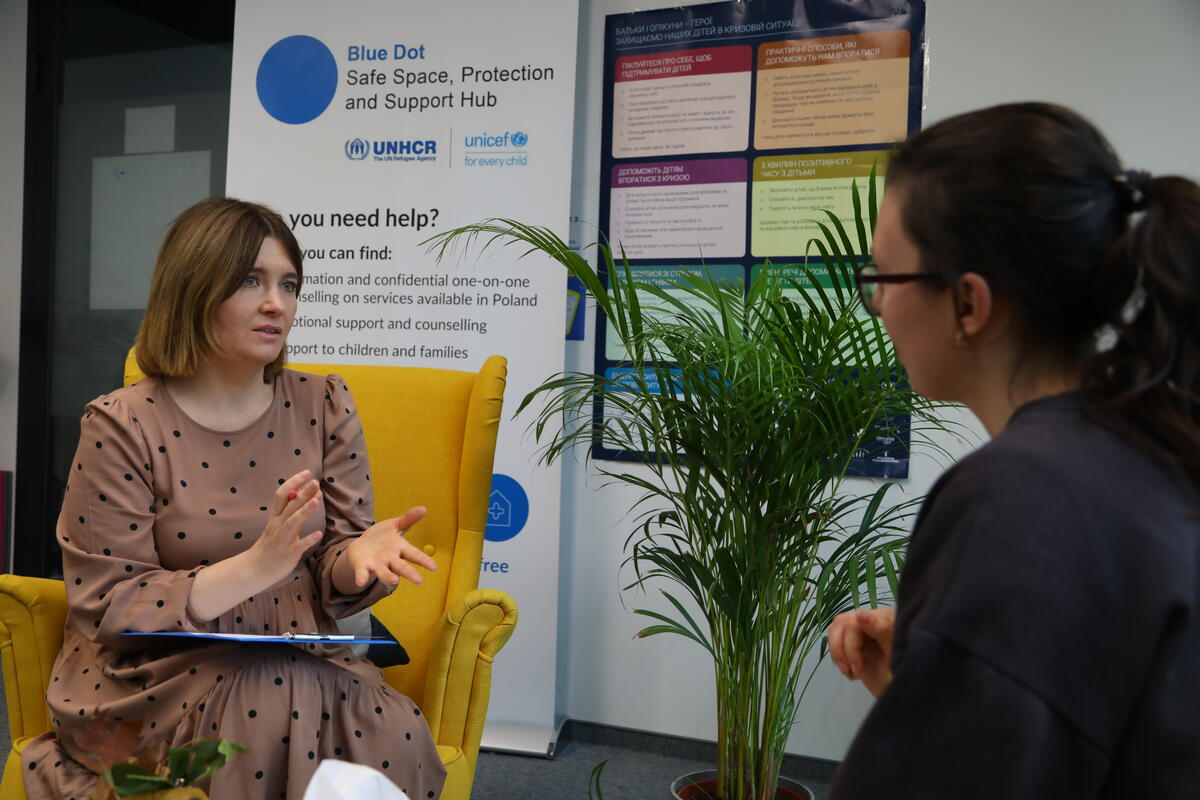Mental health and psychosocial support
Mental health and psychosocial support
UNHCR advocates for refugee access to national mental health care systems, builds the capacity of local health staff and communities and supports mental health programmes in facilities.

Refugees face harsh conditions that put their mental health under significant stress. While many of them show remarkable resilience, some need extra support to rebuild their lives.
UNHCR’s Mental Health and Psychosocial Support (MHPSS) programming builds the capacity of local health staff and communities and supports the management of mental, neurological and substance use conditions in health facilities.
UNHCR strives for the integration of MHPSS in medical services for refugees and advocates for the inclusion of refugees into national mental health systems.
Refugee mental health and psychosocial wellbeing is an integral part of UNHCR’s approach to protection, public health and education. Forced displacement due to armed conflict, persecution or natural disasters put significant psychological stress on individuals, families and communities. Refugees not only experience atrocities prior to their flight, their living conditions in host countries can impose more stress and hardship. Refugees with preexisting mental health conditions, including depression, anxiety, bipolar disorder and psychosis, often face greater challenges when trying to navigate asylum systems.
In many refugee situations, specialized mental health professionals are not present, especially for children and adolescents. When available, they often only reach a small proportion of those who need services. Many refugee mental health and psychosocial concerns, however, can be best addressed within communities themselves. Where possible, UNHCR trains and supports refugee community outreach volunteers who guide other refugees on accessing services while fostering social cohesion and mutual support.
Health
UNHCR advocates for the inclusion of refugees into national health systems and for the integration of mental health into primary healthcare. UNHCR trains health staff (physicians and nurses) to identify and manage priority refugee mental health conditions. Non-specialists (social workers, community volunteers) also receive training on brief forms of psychological therapy. In some situations, UNHCR may fund mental health professionals (psychiatric nurses or psychiatrists) to address more complex refugee mental health conditions. UNHCR supplies ministries of health, local clinics and partners with medication to treat mental health conditions and neurological disorders such as epilepsy.
Community-based protection
UNHCR prioritizes working in partnership with refugee communities to provide appropriate mental health and psychosocial support services. Appropriate services mean they are available and aligned to the diverse needs of men, women, girls and boys of all ages, ethnicities, backgrounds and religions, including being made accessible for persons with disabilities, and other marginalized groups in the refugee community.
UNHCR integrates mental health and psychosocial support into existing interventions. For example, sporting activities and computer and literacy classes support the development of coping mechanisms in addressing and alleviating stress. UNHCR establishes refugee support groups for those who may require more tailored support, including refugees with severe and chronic mental health conditions and intellectual or developmental disabilities.
Child protection
Through UNHCR’s child protection programming, refugee children receive appropriate psychosocial support, including individual, family and group-based interventions. UNHCR establishes structured recreational and life skills activities for refugee children that are led by community members. Refugee parents and caregivers receive information on children’s mental health and wellbeing and have the opportunity to discuss their children’s and their own emotions and behavior in emergencies.
Gender-based violence prevention and response
UNHCR focuses on mental health and psychosocial wellbeing in case management for survivors of gender-based violence. UNHCR trains first-responder partner service providers on psychological first aid, including for clinical management of rape. Case managers receive training on linking survivors to available community-based psychosocial support, services and referrals.
Education
UNHCR’s new education strategy, Refugee Education 2030, promotes conditions that foster social and emotional learning (SEL). The strategy calls for the provision of mental health and psychosocial support for refugee children so they can concentrate, learn and develop health relationships.
Mental health and psychosocial support annual reports
Reviews culture, context and mental health
- Syrian refugees
- Somali refugees
- Rohingya refugees
- South Sudanese refugees and IDPs – Webinar recording April 2023 (YouTube)
Evidence reviews on clinical issues
Clinical tools
- Mental Health GAP Humanitarian Intervention Guide (Available in Arabic, French, Kirundi, Portuguese, Russian, Spanish and Ukrainian) / Addendum Valproic Acid
- Assessing Mental Health and Psychosocial Needs and Resources
- Mental Health GAP Module Stress (Available in Arabic and French)
- mhGAP HIG Training Materials
Clinical tools by the World Health Organization (external links)
- Problem Management Plus (Individual version / Group version)
- Interpersonal Therapy for Depression
- Doing what Matters in Times of Stress
- Self Help Plus





